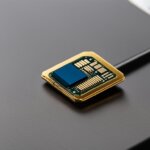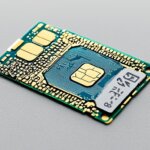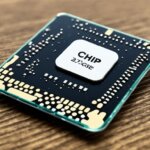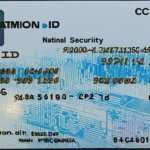Table of Contents
A SIM card, also known as a subscriber identity module, plays a vital role in mobile connectivity and device usage. It is a small plastic piece with a circuit-embedded chip that stores identifying information on a mobile device. SIM cards serve as a link between the physical device and the owner’s account, enabling phone companies to track device utilization accurately and charge subscribers for their service.
SIM cards contain unique information such as the International Mobile Subscriber Identity (IMSI) and Integrated Circuit Card Identifier (ICCID), which are used for identification purposes. The IMSI, stored in the chip, verifies and provides security for the phone’s user. When a device connects to a phone service network, the IMSI and an authentication key are sent to the service provider to validate ownership.
There are different types of SIM cards available, including full-size, mini, micro, nano, and embedded (eSIM). Each type has its own advantages and disadvantages. For example, full-size SIM cards were commonly used in older cellphone models, while nano-SIM cards are widely used in modern iOS and Android devices.
With the ability to purchase a local SIM card while traveling and quickly swap cards into new devices, SIM cards offer convenience and flexibility. However, they are not without vulnerabilities. SIM swapping attacks pose a threat, allowing attackers to gain access to personal information.
The future of SIM cards looks promising, with the possibility of having accounts with multiple providers simultaneously. Additionally, eSIM technology, which eliminates the need for a physical card, is gaining popularity and could become the dominant type of SIM card.
In the upcoming sections, we will explore the details of SIM cards, how they work, the different types available, and the advantages and disadvantages they offer. Join us on this journey to gain a comprehensive understanding of SIM cards and their role in mobile connectivity and device usage.
What Is a SIM Card?
A SIM card, short for subscriber identity module, is a small plastic piece with a circuit-embedded chip that stores identifying information on a mobile device. It acts as a link between the physical device and the owner’s account, allowing mobile service providers to associate devices with individual customer accounts.
SIM cards contain unique information such as the International Mobile Subscriber Identity (IMSI) and Integrated Circuit Card Identifier (ICCID). The IMSI is a 64-bit number stored in the chip that verifies and provides security for the phone’s user. When a device connects to a phone service network, the IMSI and an authentication key are sent to the service provider to verify the device’s ownership.
The ICCID, on the other hand, is an 18-to-22-digit code that serves as a non-duplicable ID for the SIM card itself. It reflects information about the SIM card’s designated industry, country, service provider network, and unique ID.
“A SIM card, short for subscriber identity module, is a small plastic piece with a circuit-embedded chip that stores identifying information on a mobile device.”
“SIM cards contain unique information such as the International Mobile Subscriber Identity (IMSI) and Integrated Circuit Card Identifier (ICCID).”
In summary, a SIM card is a crucial component of mobile devices that establishes a connection between the physical device and the owner’s account. By storing essential identifying information, SIM cards enable mobile service providers to associate devices with individual customer accounts, ensuring secure and authenticated network access.
How Do SIM Cards Work?
SIM cards play a crucial role in ensuring seamless communication on mobile devices. They work by storing an individual’s unique information, such as the International Mobile Subscriber Identity (IMSI) and Integrated Circuit Card Identifier (ICCID), which are essential for identification purposes and network access.
Mobile network operators use the IMSI and ICCID stored in the SIM card to verify the user and decide whether to grant network access to the associated device. Let’s delve into these unique identifiers:
International Mobile Subscriber Identity (IMSI)
The IMSI is a 64-bit number stored inside the SIM card’s chip. It serves as a verification tool and provides security for the user. When a mobile device connects to a phone service network, the device’s IMSI and an authentication key are sent to the service provider for verification. If both credentials match the provider’s records, the device is granted access to the network.
Integrated Circuit Card Identifier (ICCID)
The ICCID is an 18-to-22-digit code embedded on the SIM card itself. It acts as a non-duplicable identification number for the SIM card. The ICCID contains valuable information about the SIM card, including its designated industry, country, service provider network, and unique ID. This helps mobile network operators know which network to connect the SIM card and associated device to.
In summary, SIM cards store a user’s IMSI and ICCID, which are vital in establishing network access and ensuring secure communication on mobile devices.
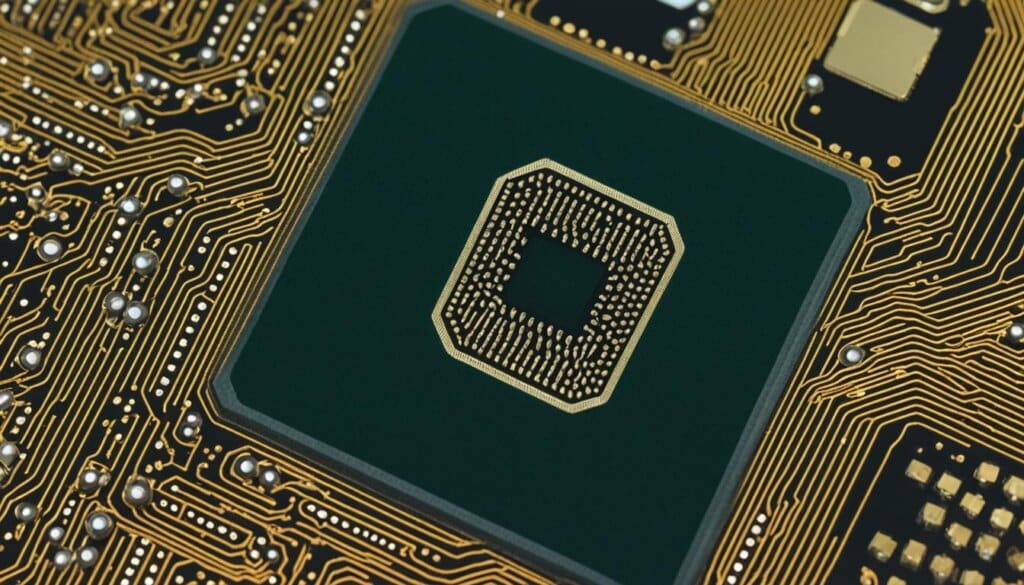
| How SIM Cards Work | Benefits | Considerations |
|---|---|---|
| Store International Mobile Subscriber Identity (IMSI) and Integrated Circuit Card Identifier (ICCID) | Facilitates verification and security | Potential vulnerabilities to cyber attacks |
| Mobile network operators use IMSI and ICCID for network access | Seamless connectivity | Requires compatible device |
| IMSI verifies user ownership | Easier network transition | May inflate phone bills through international roaming |
| ICCID serves as a unique identifier for the SIM card | Quickly swappable between devices | Potential risk of SIM swapping attacks |
Types of SIM Cards
SIM cards come in various sizes and types to accommodate different devices. The five main types of SIM cards are full-size, mini, micro, nano, and embedded (eSIM).
Full-size SIM cards are the original and largest type, resembling the size of a credit card. They were commonly used in older cellphone models from the early to mid-1990s.
Mini-SIM cards significantly reduced the size to about one-third of the full-size SIM card. They were used in phones from the late 1990s to early 2000s.
Micro-SIM cards further reduced the size to around half an inch in length and width. They were used in phones like the iPhone 4.
Nano-SIM cards are the smallest physical card type, measuring 8.8 mm by 12.3 mm. They are widely used in modern iOS and Android devices.
Embedded SIMs, or eSIMs, are entirely digital and built into a mobile device. They allow users to activate a service plan without a physical card and are found in phone models like the iPhone 14.
| SIM Card Type | Description |
|---|---|
| Full-size SIM | Original and largest type, resembling a credit card |
| Mini-SIM | Significantly smaller than full-size SIM, used in older phones |
| Micro-SIM | Further reduced size, used in phones like the iPhone 4 |
| Nano-SIM | Smallest physical card type, widely used in iOS and Android devices |
| Embedded (eSIM) | Digital SIM built into a mobile device, no physical card required |
Advantages and Disadvantages of SIM Cards
SIM cards offer several advantages for mobile users. One of the key benefits is easier phone use while traveling. By purchasing a local SIM card when abroad, users can avoid high international rates and the need to buy a new phone. They can simply swap out their existing SIM card and continue accessing their data and applications without any hassle.
Another advantage of SIM cards is their ability to be quickly swappable. In case of a phone malfunction or low battery, users can easily transfer their SIM card to a different device. This flexibility ensures that they can stay connected and use their preferred device without any interruption.
However, it’s important to consider the disadvantages associated with SIM cards. One such drawback is the potential for inflated phone bills while traveling. If users opt for international roaming instead of purchasing a local SIM card, they may face exorbitant charges that can significantly increase their phone bills.
Another disadvantage of SIM cards is their vulnerability to various threats, such as SIM swapping. In a SIM swapping attack, attackers convince a service provider to transfer a victim’s account to a new SIM card. This gives the attackers access to the victim’s personal information and can lead to potential damage and security breaches.
Advantages of SIM Cards
- Easier phone use while traveling
- Quickly swappable between devices
Disadvantages of SIM Cards
- Inflated phone bills while traveling
- Vulnerable to threats like SIM swapping
When considering whether to use a SIM card, it is important to weigh the advantages and disadvantages to make an informed decision that best suits your needs.
The Future of SIM Cards
SIM cards are expected to play a crucial role in mobile communications for the foreseeable future. In fact, they might become even more prevalent as customers increasingly opt for accounts with multiple service providers simultaneously. Apple’s devices are already pioneering this trend, allowing users to juggle two carriers or connect a primary provider to an eSIM alongside multiple physical SIM cards for travel purposes.
One of the driving forces behind the future of SIM cards is the rise of eSIM technology. These digital SIM cards are built directly into mobile devices, eliminating the need for a physical card. With eSIMs, users can activate a service plan without the hassle of swapping out physical cards or reconfiguring their accounts with primary providers. This cutting-edge technology is gaining popularity and has the potential to become the dominant type of SIM card in the coming years.
However, it’s important to note that eSIMs are not without their vulnerabilities. Similar to regular SIM cards, eSIMs are susceptible to SIM swapping attacks. These attacks occur when cybercriminals convince a service provider to transfer a victim’s account to a new SIM card, granting them unauthorized access to personal information. Despite this drawback, eSIMs offer undeniable convenience and are poised to shape the future of mobile connectivity.
In the end, the future of SIM cards rests on customer behavior and preferences. As technology continues to advance, SIM cards are likely to evolve and adapt to meet the changing needs of mobile users. Whether it’s the seamless integration of multiple providers or the widespread adoption of eSIM technology, the future of SIM cards holds exciting possibilities for the world of mobile communications.
FAQ
What is a SIM card?
A SIM card, also known as a subscriber identity module, is a small plastic piece with a circuit-embedded chip that stores identifying information on a mobile device.
How do SIM cards work?
SIM cards work by storing a user’s International Mobile Subscriber Identity (IMSI) and Integrated Circuit Card Identifier (ICCID) information. Mobile network operators use this information to verify the user and decide whether to grant network access to the associated device.
What are the types of SIM cards?
There are different types of SIM cards, including full-size, mini, micro, nano, and embedded (eSIM).
What are the advantages and disadvantages of SIM cards?
SIM cards offer advantages such as easier phone use while traveling and the ability to quickly swap the card into new devices. However, they also have disadvantages, such as inflating phone bills while traveling and being vulnerable to cyber attacks like SIM swapping.
What is the future of SIM cards?
The future of SIM cards looks promising, with possibilities such as multiple provider accounts and the dominance of eSIM technology.


